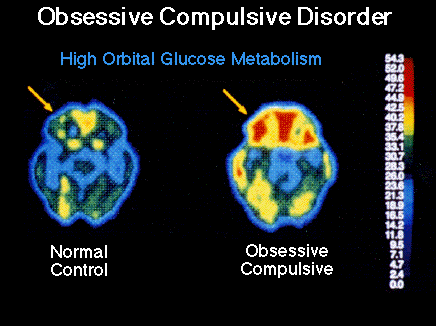
Wow, it’s so hard for me to believe I’m already at my 100th post! I’ve come a long way, and learned more than I thought possible about blogging, social media, self-publication, and the delicate art of raising public awareness. But now, I think my 100th blog post gives me the perfect moment to step back from all that “promoting” and simply re-dedicate myself to you, my readers, and to “my cause”.
I would like to renew my vows, as it were ~ to Suicide Prevention and Grief Support. My passion for suicide prevention is dedicated to Dan Rieske, my fiancée who killed himself several years ago. My passion for grief support is dedicated to…myself…who was so over come by her grief, that she almost committed suicide herself. In this way, Dan and I are still walking side by side ~ hand in hand ~ to try and make the world a better place.

First up: Suicide Prevention. There is an alarming trend in the world for people to attach a stigma to mental illness, including Depression, Self-harm, Anxiety Disorder, OCD, eating disorders, and all the others. This is one of the reasons those suffering from these physical ailments do not receive the proper medical treatment that they need. Mental illness is often viewed as a weakness of character, rather than a physical abnormality in the brain.



The images above are just a few examples of how mental illness is rooted in the physical condition of the brain. In the same way a diagnosis of Parkinson’s disease, Multiple Sclerosis, or Alzheimer’s is made ~ through brain imaging ~ can any other kind of brain disorder, ie: mental illness, be diagnosed.
Another damaging belief is that since mental illness is “all in the head”, medical treatment is a crutch ~ an un-neccessary and detrimental fix for those looking for “an easy way out” of their problems.
My 14 year old daughter, who suffers from a range of disturbing issues which tie directly to her clinical depression, is on 2 medications ~ Prozac and Lamotrigine. I’ve heard countless times from people to get her off these damaging medications and “get to the real issue” through therapy. Something must have happened to her, they think. In the back of their minds, I’m sure many of them are wondering how I failed her as a parent, or secretly wondering if she has suffered from some type of abuse. They don’t understand.

Nothing overly traumatic has happened to my daughter. She is clinically depressed. Her illness has manifested itself in a variety of ways. She struggles with an eating disorder, self-harm, and unpredictable mood swings. When she is on her medication, these symptoms are still there, though they become more manageable and tolerable. If it were not for her medication, I’m sure she would have had a serious suicide attempt by now, or a successful one.
It’s true that there are many people who suffer from a mild form of mental illness. They are able to successfully self-treat themselves, either on their own, or with the help of a therapist and without the use of medications.
But, when you can start to think of mental illness in the same way you think of Diabetes, then you will finally be able to come to terms with the reality of mental illness.

Almost everyone will agree that Diabetes is a diagnosable, physical, disease that is rooted in body chemistry, specifically, the physical properties of the pancreas. We agree that there is a genetic propensity for the disease. We realize that if you inherit the gene, you are more likely to develop the disease ~ but not always.
Some people develop it early in childhood, some later in life. Some develop it seemingly out of the blue and for no apparent reason. They may eat a healthy diet and still suffer from severe Diabetes. But other people develop it due to poor eating habits. We understand that, regardless of how they developed it, the gene must be there ~ the gene they inherited. Some develop a mild condition, some severe. Some can control it on their own, with diet and excercise, some can’t. Of those who DO need medication, some need only a daily pill, some need multiple injections throughout the day. Some people can learn to live productively with their Diabetes and manage the symptoms, some people suffer devastating side effects such as loss of limb or even death.

Mild or severe, childhood onset or adult, good eating habits or bad, medication or not ~ we recognize them all as manifestations of Diabetes ~ a real, physical, medical disease.
Insert the name of any mental illness into the Diabetes formula and you will finally get it right. Some are mild, some severe. Some manifest in childhood, some adulthood. Sometimes they develop for seemingly no reason at all, some are brought forth from a triggering event such as bullying, grief, abuse, or a traumatic event. Some people can control their mental illness symptoms through lifestyle choice and/or therapy, some require medication. Some people can lead productive lives and manage their symptoms, some suffer devastating side effects such as self harm, suicide attempts, or even death. All, are directly caused by a chemical imbalance in the brain. And all those who suffer from them have a genetic propensity for it. It’s in their genetic make up.
Even with the best care, Diabetes is sometimes fatal. And so it is, with mental illness.

Imagine, for a moment, that you were blamed for having cancer. That you were told to let go of the crutch of chemotherapy and heal yourself. That you were told to stop feeling sorry for yourself and trying to get others to feel sorry for you. That you were told to just die already and stop causing your family so much trouble. That you were told you need to take responsibility for yourself and “get over it”. That you were told that everyone gets cancer from time to time, but we all don’t just sit around feeling sorry for ourselves because of it. That people looked down on you and bullied you because of your cancer.

Please, do your part to end the stigma of mental illness. Share what you’ve learned. Talk about it. Reach out to someone who suffers from mental illness. Let people know it’s nothing to be ashamed of. Once the stigma ends, healing can begin.
Below are my posts which directly relate to suicide prevention:
How to help someone who is suicidal
How to report suicidal content on social networks
They don’t want to die. They just want attention.
Please check out my Resources/Support page, and feel free to comment on any other great support sites that should be added to my list!
All my proceeds from the sale of my book, will be donated to the National Suicide Prevention Lifeline If you or someone you care about is in crises, help is available 24/7.
This post has become longer than anticipated, and so I will devote a separate post to my re-dedication to Grief Support. Please check back!
~~~~~~~~~~~~~~~~~~~~~~~~~~~~~~~
What do you think? Any thoughts or suggestions on ending the stigma and preventing suicide are most welcome and appreciated!
Filed under: My commitment to Suicide Prevention and Grief Support Tagged: anxiety, bullying, Depression, end the stigma, grief, grief support, Health, Mental health, mental illness, ocd, Self-harm, Suicide, suicide prevention, teen























